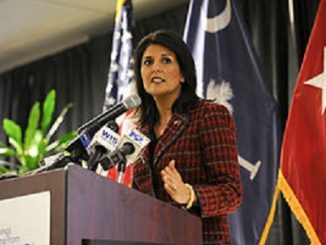
How did Saudi Arabia, which has been indiscriminately bombing Yemeni civilians for 18 months, just get just re-elected to the Human Rights Council, the United Nation’s premier human rights body? Unlike Russia, whose failure to retain its council seat made the news last week, Saudi Arabia was able to slide safely back into its own chair.
Why? Because it had no competition. Seats on the Human Rights Council are shared among five regional groups. This year, the Middle East and Asia group put forward just four candidates for their four open seats on the council, effectively guaranteeing their election. Unsurprisingly, Saudi Arabia, China, Iraq and Japan all won.
The Eastern Europe group, however, put forward more candidates than the number of seats available, with Russia, Croatia, and Hungary all competing for two seats. The result was Russia’s unexpected defeat by two votes.
Saudi Arabia’s victory raises a serious question. Is the integrity of the Human Rights Council compromised if some countries don’t even have to compete for a seat on the body? This was one of the reasons its predecessor, the UN Commission on Human Rights, was shut down and replaced with the council 10 years ago.
Had Saudi Arabia faced a competitive slate, other countries could have closely scrutinized its numerous violations of the laws of war in Yemen, as was apparently the case for Russia’s actions in Syria. In fact, Saudi Arabia was the least popular candidate in its group, receiving the smallest number of votes. Had there been competition, this could have meant defeat for the kingdom, particularly in light of Saudi’s repeated blocking of an international investigation into alleged Yemen war crimes after the Saudi-led coalition failed to do so. Earlier this year, Human Rights Watch and Amnesty International called for its suspension from the body.
Saudi Arabia’s election follows its successful blackmail campaign to have its coalition removed from the UN secretary-general’s “List of Shame” for killing and maiming children and attacking schools and hospitals in Yemen. Saudi Arabia got its own way, though at the cost of its outrageous tactics being made public.
Candidate countries that run without competition cannot possibly face proper scrutiny of their human rights records. A competitive process may still allow serious abusers to get elected but at least, as with Russia, some member countries may think twice before voting them onto the council.
Russia’s loss teaches that at least some competition is crucial to the credibility of the election process. It is time to put an end to backroom deals and make all countries earn their seat on the Human Rights Council.



Be the first to comment